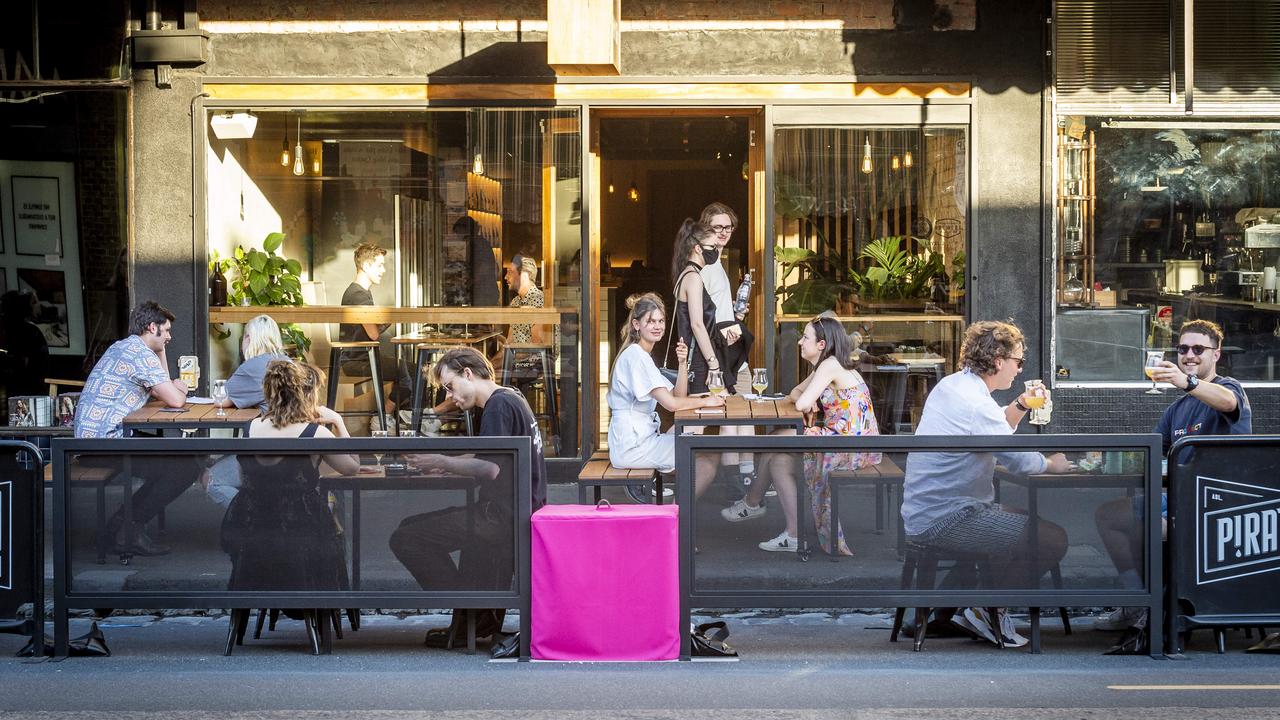Coles, Woolworths flooded with demands to hike shelf prices as inflation bites
Suppliers are rushing Coles and Woolies with requests for price increases, with some making multiple demands in just months.
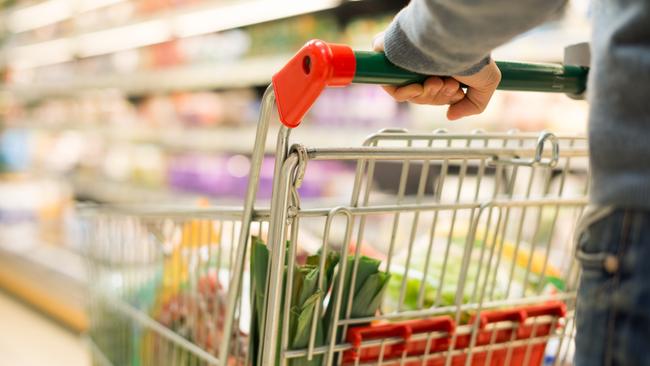
Supermarket majors Coles and Woolworths have been flooded with a record number of demands from suppliers to push through higher shelf prices on thousands of products as food producers grapple with surging inflation.
In some cases suppliers are up to their third round of requests so far this year, as they strain under rising costs. The supermarkets have warned that more demands for price increases are expected in coming months, putting pressure on supermarket shelf prices.
The sheer volume of price rise requests – mostly in the past six months – has also seen talks between suppliers and supermarkets pushing out beyond the 30-day window set down by the industry code of conduct.
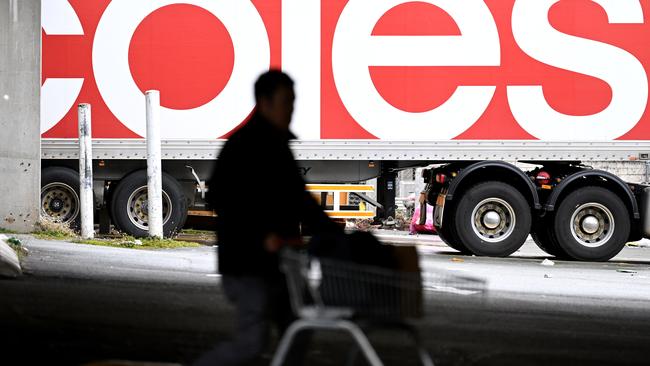
Higher prices come against a backdrop of Covid-19-linked supply chain squeezes, worker shortages, higher energy costs and major flooding across NSW and Queensland, which has hurt the nation’s food producers. For their part, supermarkets are reluctant to push through rises as shoppers are highly sensitive to price changes.
Meanwhile, concerns have been raised that the overly prescriptive bargaining process under the ACCC-sponsored Food and Grocery Code is slowing down negotiations between suppliers and supermarkets.
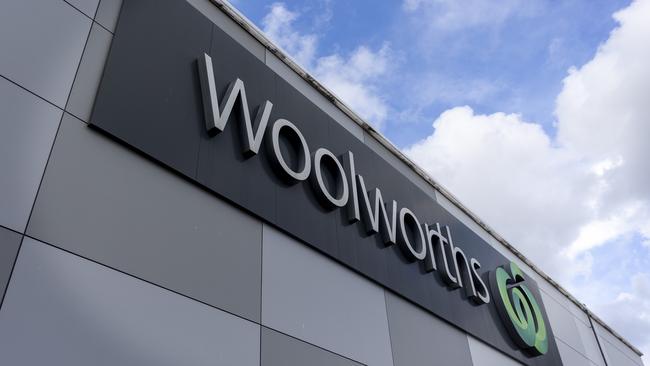
Coles chief executive Steven Cain put more detail around the magnitude of the price rises across his shelves as he delivered the supermarket major’s full-year earnings report on Wednesday. He revealed grocery price hikes on the shelves have accelerated through 2022, rising 4.3 per cent in the fourth quarter. Woolworths will follow with its annual profit update on Thursday.
Former Victorian Premier Jeff Kennett is Coles’ arbiter of disputes between the supermarket and its suppliers. In the year to end-June, Coles had more than 4120 formal requests from its suppliers to increase prices.
The figures, revealed in the annual reports from supermarkets on how they deal with suppliers, also show 664 of the price rise requests were initially rejected by Coles, and pricing negotiations took more than 30 days. Of these, more than 80 pricing talks took more than three months. Kennett noted that just two cases were raised with him in his role as arbiter. Both matters were resolved within 20 days, he said. The report keeps the detail of pricing requests confidential.
A year earlier, when inflation had barely set in, Coles had 1100 price rise requests from suppliers, with the majority of these linked to fresh fruit and vegetables. At the time just 35 of the price negotiations between Coles and its suppliers went beyond the 30-day window required under the code, with 14 taking more than three months.
In its report Woolworths said price requests from suppliers started to come through from November last year, before quickly surging. Woolworths said the number of price rise requests received between January and end-June exceeded the previous financial year’s volume by over five times.
“This increase has required the urgent allocation of significant administrative and additional category management resources to assist commercial teams,” Woolworths said.
“The high volume of price rise requests continues into (financial year 2023), with many suppliers seeking second or third price rises, sometimes while the first request is still in negotiation,” Woolworths said.
Aldi revealed it had 1140 requests for price rises from suppliers in the year to the end of June, with 132 of these taking longer than the 30-day window.
Kennett noted that the need for prescriptive reporting of talks between supermarkets and suppliers under the code of conduct was creating a lot of work for all parties.
“In a time of higher inflation, supply chain interruptions, the impact of floods, this requirement is particularly bureaucratic and time-consuming and therefore costly to Coles and all supermarkets,” Kennett said. “Sadly I expect these issues to continue throughout 2023.”
Woolworths chief executive Brad Banducci recently wrote to Chris Leptos, the government-appointed independent reviewer of the food and grocery code, saying his supermarket acted in good faith and stressing that disagreements on pricing between the supermarket and supplier are usually resolved through informal talks.
Coles’ Cain said the chain took its obligations in dealing with suppliers “very seriously” and was committed to doing the right thing and ongoing improvement. Cain is scheduled to meet with hundreds of suppliers at a forum later this week.
Boral reborn
It’s been a high-octane two years for Boral chief executive Zlatko Todorcevski, who is about to sign off on a very different building materials company to the one he started at.
Few businesses have undergone such a dramatic transformation in such a short time. And the remaking of Boral was done while the external shock of Covid-19 was turning its traditional markets upside down.
Under Todorcevski, Boral has sharply narrowed its focus on Australia after selling off more than $5.5bn worth of global businesses. Just last year there were $4.1bn worth of asset sales including the North American and Australian building products (timber, roofing and masonry), returning some $3bn in funds to investors.
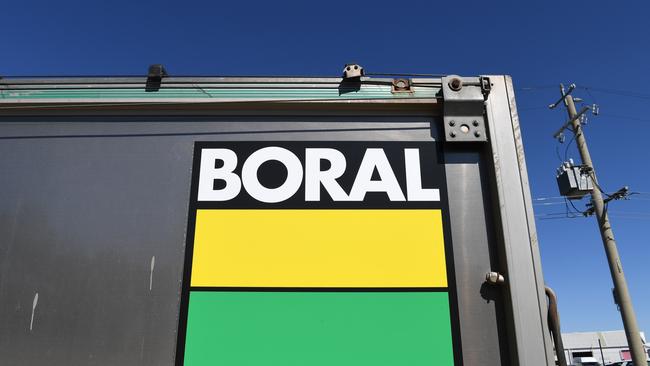
Significantly for Todorcevski, Boral during this remake became target of a tactical grab for control by Kerry Stokes, culminating in the media mogul’s Seven Group taking two-thirds of the company. Seven chief executive Ryan Stokes was last year installed as Boral’s chairman and is putting his stamp on the business with a board shake-up.
In June Stokes announced that former Cleanaway boss Vik Bansal would replace Todorcevski by December. Recently Bansal led Sanjeev Gupta’s Infrabuild business; the mooted stockmarket listing of the steelmaking and distribution business is on hold.
The question for investors is whether Boral is a better company today with a slimmed-down base.
Taking charge in mid-2020, Todorcevski, the former Adelaide Brighton chairman and top BHP executive, approached Boral with the top-level view of the boardroom rather than management. He ran an internal review of Boral’s assets, making sure he kept investment banks out of the process. In this he looked at the positions, strengths, competitive advantage and future earnings potential. This formed the blueprint for how Boral should look in the future and the company’s underpinning strategy.
At the time Boral operated in 17 countries, including Australia, in a “mishmash” of construction materials that didn’t all work together, and it had a stretched balance sheet.
“We were a mix of building materials businesses plus fly-ash in North America and then we had this 50-50 joint venture in plasterboard in Australia and Asia,” Todorcevski says in an interview.
“Now it’s a very, very focused construction materials business, wholly in Australia.”
Today Boral generates the bulk of earnings from concrete, then asphalt and cement, with big infrastructure projects and non-residential buildings being its biggest markets. It has $1bn of property also earmarked for development.
Floods and storms across Australia’s east coast over the past year played havoc with Boral’s bottom line, but Todorcevski pushes back against suggestions Boral is now too leveraged to a single market. “Previously people would say if you’ve got geographic diversification into different markets, then net net, you’re in a better, better position – what we found is that wasn’t the case.
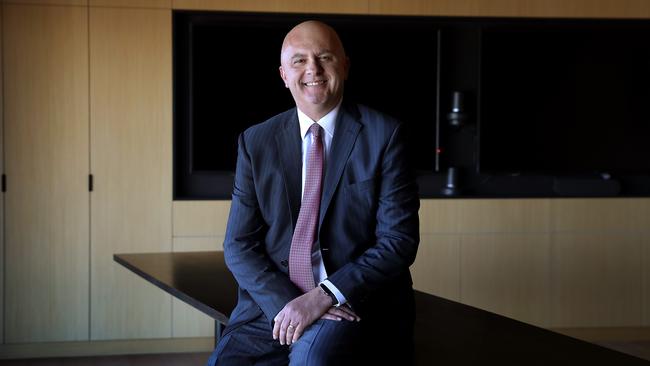
“We were in North American housing construction which came off as Australia was in the doldrums. And in fact, it doubled-down and exacerbated some of the issues the company faced.”
Regarding the decision to focus on Australian construction materials, he says Boral had a strong position in the market but its performance wasn’t reflecting this. Now it’s proving a business that can withstand economic cycles, he says. This includes becoming much better and more dynamic in passing on higher raw material costs in its contracts, something Boral had been slow to do.
Boral posted a 38 per cent drop in operating profit to $112m, with the business hampered by Covid-19-linked construction shutdowns, a $58m surge in energy costs and flooding in NSW and Queensland.
After stripping out the proceeds of the asset sales Boral had negative free cash flow last financial year, but that came on the back of a big year for capital expenditure. The company’s balance street is stronger with net debt falling to just $476m, giving it a gearing ratio of 20 per cent. Net debt peaked at $2.45bn following an acquisition spree by former chief executive Mike Kane. At the same time Boral’s latest figures show a return on equity of 7.9 per cent is near the decade high of 8.2 per cent. With the asset sales and restructuring, staff numbers have halved to 4800.
Boral shares closed 2.4 per cent higher at $2.96 on Tuesday.
Todorcevski, who plans to take a long break and then consider board positions, says there’s more work to be done but he wants to leave the slate clear for the incoming chief executive. He speaks with Bansal at least once a week to keep him across the drivers of the business.
He admits the “frustration” of the external shocks pressuring earnings. Stripping out weather and Covid, earnings would have been up 18 per cent for the year, even with higher inflation. “That gives me comfort that we’re pulling the right levers. Although the job’s not done, we’re starting to see some of the benefits flow through. 2022 is just a challenging year, but the underlying results actually look quite strong, and I feel good about handing that off,” he says.
johnstone@theaustralian.com.au


